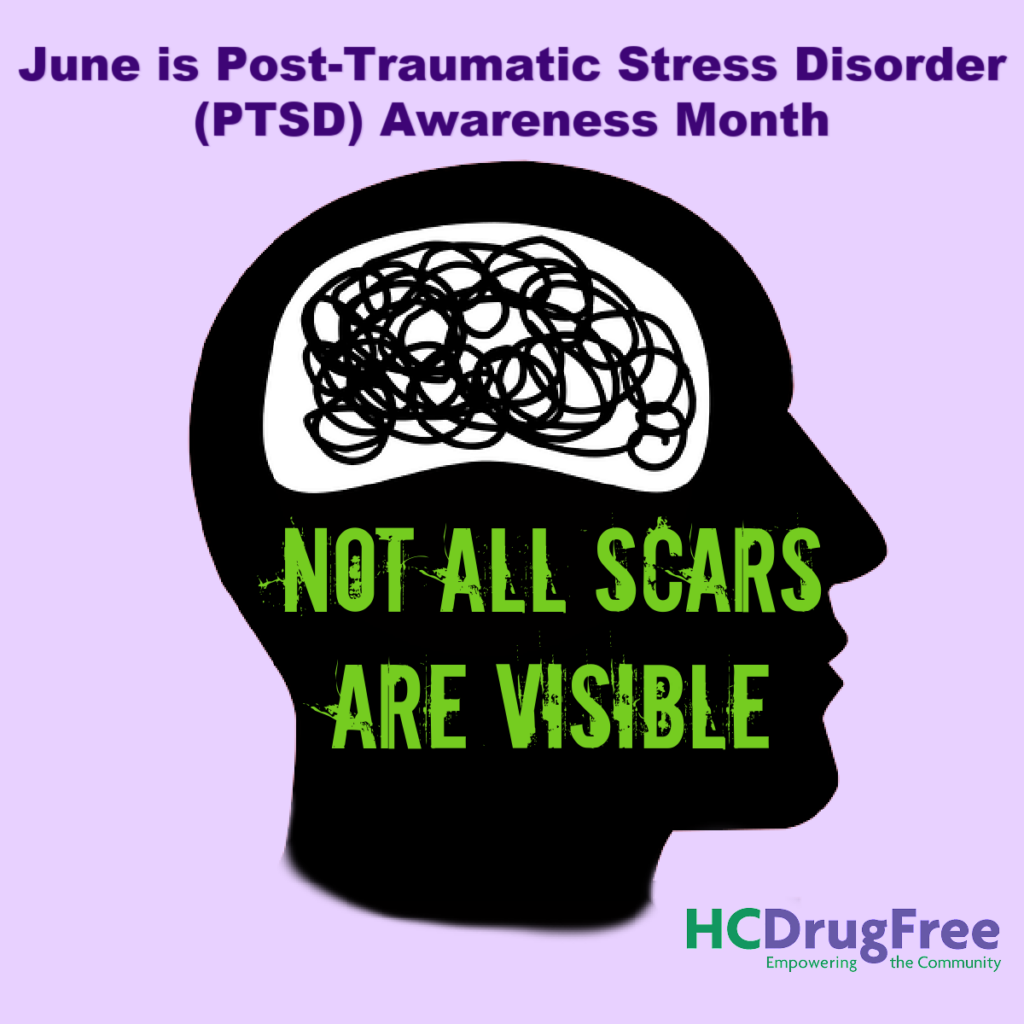
June is PTSD Awareness Month, officially declared by President Barack Obama in 2014. PTSD is an acronym for “Post Traumatic Stress Disorder.” This mental health disorder, originally identified in Veterans as early as the Civil War, has been recognized since 1980 in the Diagnostic and Statistical Manual (DSM), which mental health professionals use for guiding diagnoses. According to the National Institute for Mental Health (NIMH), PTSD manifests as a range of persistent, fear-related reactions to traumatic events experienced personally or to a close friend or family member. Approximately six percent of the U.S. population will experience PTSD in their lifetime, based on estimates from the National Center for PTSD.
Symptoms of PTSD usually occur within a month of experiencing a traumatic event. According to NIMH, adults who have PTSD have had at least six of the following symptoms for more than a month:
- • Flashbacks—reliving the traumatic event, including physical symptoms, such as a racing heart or sweating
- • Recurring memories or dreams related to the event
- • Distressing thoughts
- • Physical signs of stress
- • Staying away from places, events, or objects that are reminders of the experience
- • Avoiding thoughts or feelings related to the traumatic event
- • Being easily startled
- • Feeling tense, on guard, or on edge
- • Having difficulty concentrating
- • Having difficulty falling asleep or staying asleep
- • Feeling irritable and having angry or aggressive outbursts
- • Engaging in risky, reckless, or destructive behavior
- • Trouble remembering key features of the traumatic event
- • Negative thoughts about oneself or the world
- • Exaggerated feelings of blame directed toward oneself or others
- • Ongoing negative emotions, such as fear, anger, guilt, or shame
- • Loss of interest in previous activities
- • Feelings of social isolation
- • Difficulty feeling positive emotions, such as happiness or satisfaction
The U.S. Department of Veterans Affairs offers a free screening tool and resources to anyone (not just Veterans!) who suspects they or someone they know may have PTSD. It is crititical that people suffering from PTSD seek help (ask your doctor), as the National Institute for PTSD cited research in its PTSD Research Quarterly that people with PTSD are more likely to have an Opioid Use Disorder and it also warns that PTSD and alcohol misuse are linked.





Sorry, comments are closed for this post.